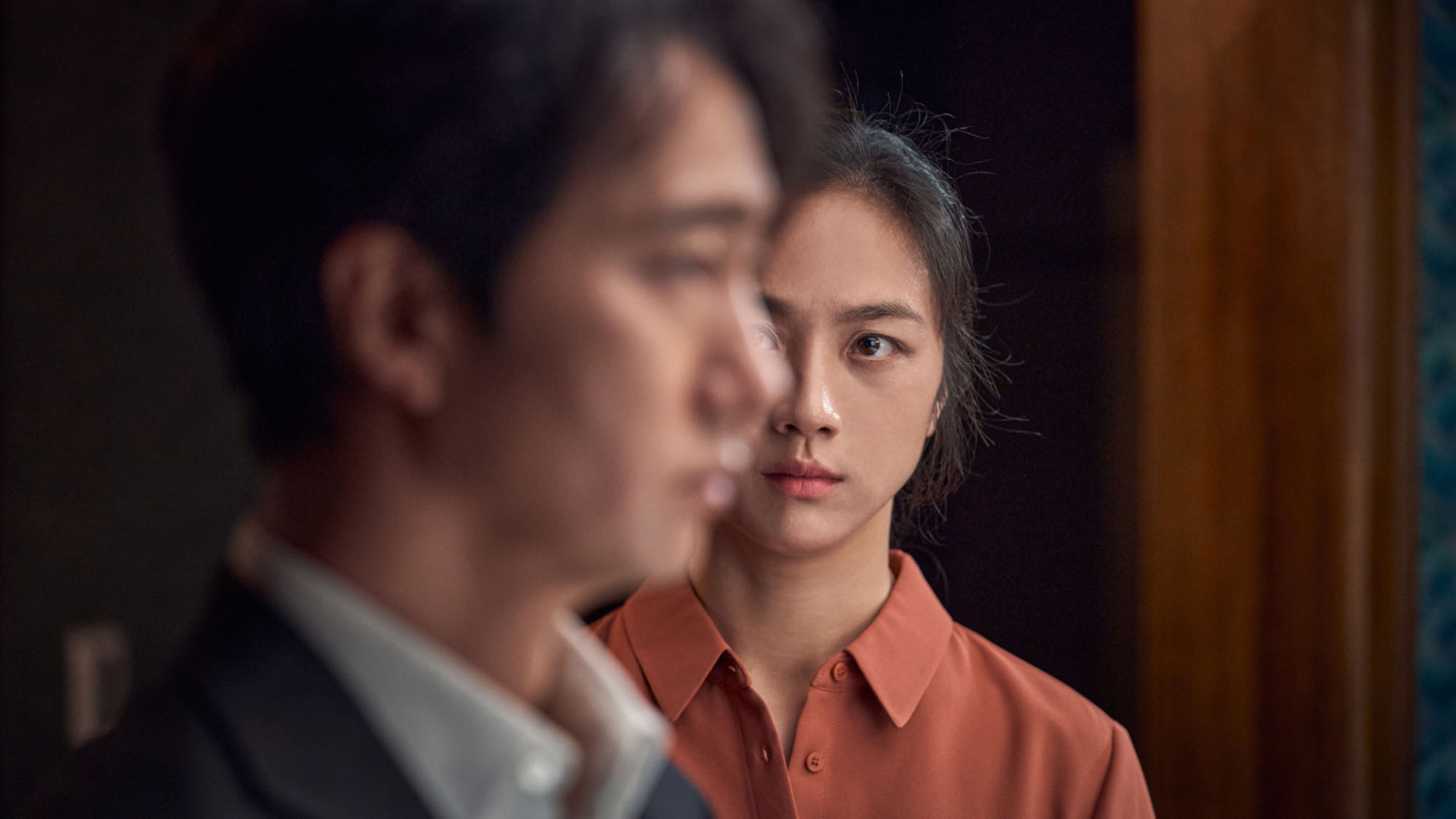‘Decision to Leave’ premiered at the Cannes Film Festival 2022. This review contains mild spoilers.
There’s a special brand of eroticism you can expect from a Park Chan-wook film. A notably sexy scene in The Handmaiden (2016), for instance, sees protagonist Sook-hee bathing her mistress Lady Hideko; when she complains that one of her teeth is cutting the inside of her cheek, Sook-hee inserts a finger into Hideko’s mouth, using her thumbnail to file down the offending molar as her eyes slowly drift down towards her lady’s chest. The South Korean director’s newest movie, an opulent and stylish crime drama named Decision to Leave (or Heojil Kyolshim, translated literally as ‘Decision to Break Up’) plays host to a number of similarly charged scenes, though these are rooted in a forbidden love of a rather different persuasion.
Insomniac detective Hae-joon (Park Hae-il) – the youngest inspector, we are repeatedly told, on the city of Busan’s police force – finds himself irrevocably drawn into the orbit of the elegant and enigmatic Seo-rae Song (Tang Wei), a Chinese widow who doesn’t seem all that cut up about her husband’s untimely death-by-falling-off-a-cliff. “She is young and beautiful and foreign,” Hae-joon says to his deputy Soo-wan (Go Kyung-pyo). “Does that make her a murder suspect?” No, but you’re overlooking some major sociopath vibes here too, my man.
The film plays out like a twisted rom-com: Hae-joon’s interrogations quickly turn into backroom dates in which they flirt over expensive sushi and quickly grow close. He stakes out her apartment each night, watching through the window with literal binoculars and daydreaming about her scent. They begin spending time together outside of the case, which Seo-rae is keen for him to rule a suicide and close, permanently.
A chain-smoking K-drama obsessive who exclusively eats ice cream for dinner, Seo-rae is just the fixer-upper Hae-joon didn’t know he had been searching for. He tidies up her wrecked apartment, massages her calloused hands with lotion and cooks his best approximation of Chinese food to wean her off the ice cream; in one of the film’s most tension-filled scenes, the pair tenderly apply chapstick to each others’ lips – while it pours with rain, no less.
Despite the absolute absence of actual, physical sex and a language barrier that means the stilted voice of an auto-translate app is frequently involved in their interactions, it’s all very sensual and electric – the polar opposite of Hae-joon’s relationship with his wife, the witty and self-possessed Jung-an (Lee Jung-hyun) whom he lives with in another town entirely. Unfortunately, their intercourse – the only instance of which in the film – is deeply awkward stuff: stiff, perfunctory and terribly unsexy.
When, lying in each others’ arms in bed, Jung-an proposes that they have sex at least once a week for its health benefits if nothing else (“Even if we hate each other.”) it’s clear that a once-good, still-amiable relationship has simply gone a bit stale over many years of marriage. But moving on is never easy: the decision to leave can be an impossible one to make when the circumstances are so convoluted, or when your new girlfriend keeps ending up with blood on her cute little outfits.
While there will inevitably be those who feel let down by the comparatively understated nature of a film from a more characteristically maximalist director, Park’s signatures are still very much present: blackly funny asides, multi-twist plot lines, (lightly) bloody violence, and heart-stopping, life-ruining longing. Just try to stop yourself from falling head over heels.
Decision to Leave will be released in the US and the UK by MUBI. This review was published during the Cannes Film Festival. Follow i-D on Instagram and TikTok for more on movies.


